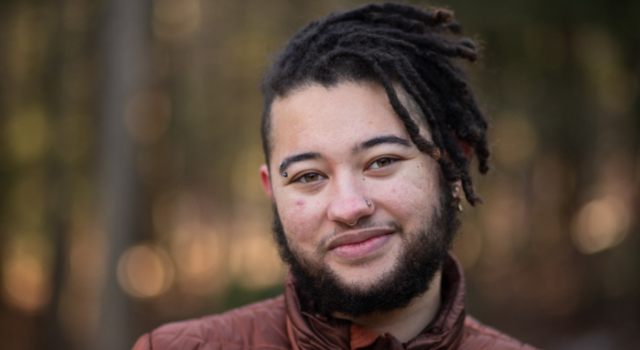Childhood, Youth, and Learning / Education
Students interested in education and critical thinking around how children and youth grow, change, create, and learn in the context of larger social structures and cultural practices are encouraged to integrate practice with existing theory and research through community-based projects, critically examine theories and practices concerning young people in relation to questions of power, implement innovative methodologies and creative critical pedagogy for young people's participation, and conduct basic and applied research in childhood studies and education studies.
Hampshire also encourages students to take what they learn in the classroom and apply it to real life situations in local community schools and organizations, enriching their educational experience and deepening their learning about childhood and youth issues.
Student Project Titles
- The Process of Teaching and Learning: Becoming an Early Childhood Educator
- Making Fantasy Fit: Theatre and Creative Writing for Children
- Listen to Me: The Self-Expression of Deaf Children Through Storytelling and Visual Art
- Working with Children, Thinking About the Self
- Taming the Wild Things: Using Picture Books to Encourage Young Children to Practice Emotional Self-Regulation
- Slim to None: Raising Awareness About Eating Disorders Through Theatre
- Issues in Education--Inequality and Access
- Teaching History for Understanding
- Adolescents and Their Educational Institutions
- Constructing Childhood, Defining Deafness, and Persuading Parents: A Study of Advice Material for Parents of Deaf Children
Sample First-Year Course
Girls in School: Feminisms and Educational Inequality
Feminists have long been invested in the relationship of girls' empowerment and education. Second Wave liberal feminism, for instance, strove to make schools more equitable places for girls, demanding equal access and resources for girls and boys and the elimination of discrimination specifically impacting girls. Yet the relationship of gender inequality and schooling is a complicated and contentious site of research and policy.
In this course we will examine how various feminist perspectives have defined and addressed the existence of gender inequality in American schools. By analyzing research, pedagogies, policies, and programs developed in the past few decades to address gender inequality and schooling, students should complete the course with a complex view of feminism and how these different, and at times contradictory, perspectives have contributed to the debates around educational inequality and the design of educational reform.
Sample Courses at Hampshire
- The American School
- Autobiographical Memory
- Consuming Childhood
- Contemporary Issues in Education Reform
- Critical Pedagogy
- The Fictional Child
- How People Learn
- Instructional Methods for Inquiry-Based Teaching
- Integration of Creative Drama and Core Curriculum
- Introduction to Art Education
- Knowing and Transforming Environments with Children and Youth
- Philosophy of Education
- Poetry and Childhood
- Psychoanalytic Approaches to Psychotherapy with Children
- Rethinking Childhood
- The Secret Life of Teachers
- Social Development
- Special Topics in Childhood, Youth, and Learning
- Teaching Science in Urban School
- Writing a Child's Voice for Theatre
- Youth, Sexuality, and Education
Through the Consortium
- Creative Arts and the Young Child (UMass)
- Early Childhood Education (SC)
- Education in the City (SC)
- Issues in Children's Literature (UMass)
- Lab in Early Social and Personality Development (MHC)
- Philosophy for Children (MHC)
- Program Planning, Implementation, and Evaluation in Special Education (UMass)
Facilities and Resources
Educational Outreach
The director of the Community Commons can help facilitates opportunities to work on and off campus. Our on-campus partners include the Hampshire College Early Learning Center and the Eric Carle Museum of Picture Book Art. They can also help coordinate class-based and individual community engagement opportunities in local schools, after-school programs, and youth-serving organizations, and support students in finding placements for various internships and field research sites.
Child Development Research Center
The Child Development Research Center is equipped with one-way observation glass, A/V recording, and a reception area for parents and children. Students working in the research center can gain valuable firsthand experience in all stages of the research process.
Three College Teacher Licensure Program
Teaching licenses obtained through the Three College Teacher Licensure Program are recognized in approximately 46 states. To become eligible for licensure in the state of Massachusetts, students must successfully complete the requirements of a teacher licensure program, pass the Massachusetts Tests for Educator Licensure (MTEL), and submit licensure application materials and fees to the Massachusetts Department of Education. The Five College licensure coordinator is available on-site at Hampshire to support students through the licensure process or to advise them about post-baccalaureate licensure opportunities.



